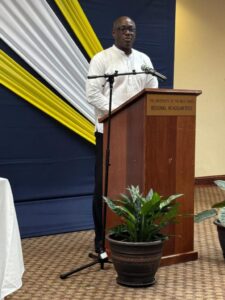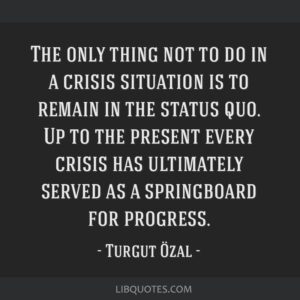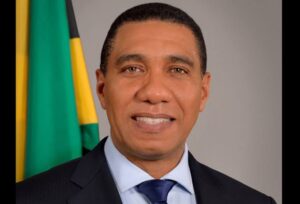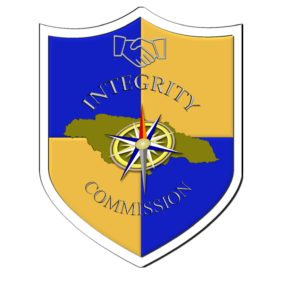
As a student of leadership, I am always looking for lessons from the issues which confront organisations and societies. Indeed, my upcoming 2026 book is titled: Leadership Opportunities: Policy and Development Implications from Jamaica’s Recent Experiences.
The underlying philosophy of looking for lessons, is rooted in something my parents taught me, namely that sitting down and crying when something goes wrong, does not help. The mindset must be to “get up and do something about it”. I gained a similar insight watching the O.J. Simpson trial thirty years ago. A young lawyer by the name of Carl Douglas had done a subpar job cross examining a prosecution witness and as he sought to rehabilitate himself from that performance, he shared an insight he may have learnt from a mentor, namely that “the only thing one has left after a crisis is how one managed the crisis”.

A learning moment?
Leaders set the tone for the organisations and societies they lead. One of the points I make in my earliest leadership theory, Proposition MRM1 – where the first M stands for modelling, is that leaders are expected to model the behaviours that both reflect the ethos of the organisation and set the standards they wish other members of the organisation to adopt.
Leaders set the tone for the organisations and societies they lead.
The information coming from the court case involving Prime Minister Andrew Holness and the Integrity Commission may have many lessons, but among those I think are most striking relate to two constructs, namely (a) leadership standards and (b) equality under the law. I will not go into the details of the case but would simply pose some questions with limited reference, in some instances, to some of the information in the case.

In relation to the first construct, leadership standards, I have some questions:
- Is it acceptable for a head of government to be unable to explain his or her wealth?
- If a head of government is unable to explain his or her wealth, what tone does that set for others in government and other members of society, including (and perhaps especially) the young who are looking for models?
- In a context in which the law treats inability to explain wealth as a possible crime of illicit enrichment, what does it mean for the office of Prime Minister that the holder is a subject of investigation for illicit enrichment?
- Is it not to be taken as a given that illicit anything is wrong? (Illicit means illegal, unlawful, dishonest, criminal).
- With one of the chief duties of head of government being that of preserving and protecting the constitution and promulgating laws for the good of society, how does one justify as being for the public good, efforts to overturn the law which makes illicit enrichment a crime?
With one of the chief duties of head of government being that of preserving and protecting the constitution and promulgating laws for the good of society, how does one justify as being for the public good, efforts to overturn the law which makes illicit enrichment a crime?
In relation to the question of equality before the law, I pose these questions:
- Shouldn’t leaders be held to the same or a higher standard than the rest of society, and if so, how does a bank which is required to flag transactions in excess of a amount, accept a deposit of Fifty Million Dollars into an account opened a few days earlier with zero dollars?
- If the law makes late submission of integrity declarations a crime, how does the Integrity Commission decide whom to prosecute and whom not to?
- Shouldn’t the provision of extra time to explain and provide submissions be extended to each person to whom the law relates, and if so, how does the Integrity Commission justify endless extensions to some persons?
- What does the individualised application of the law do for upholding the rule of law?


Shouldn’t leaders be held to the same or a higher standard than the rest of society, and if so, how does a bank which is required to flag as suspicious, transactions over a certain amount, accept a deposit of Fifty Million Dollars into an account opened a few days earlier with zero dollars?
Looking ahead
These questions must be part of an honest public discourse Jamaica must have as it seeks to frame its future. The starting point of asking questions allows for the discourse to elicit principles for the governance of society, and agreeing on the key issues of “what is good for society?” Having answered the questions, the next step is to examine the case or cases and decide on what is in keeping with the principles and what is not, and thereafter to determine whether anyone is found wanting and what reasonable consequences should be applied for any deviations from standards.
Beyond the elections
Jamaicans will go the polls in September 2025. While there is likely to be discussion of these and other questions in the next few weeks, such discussions will be sporadic and probably fleeting. Whatever the treatment received by these questions in the next few weeks, a bold, full-throated engagement with them (and others) by academia, the church, civil society, the private sector and of course parliamentarians will be necessary.
Jamaica’s leaders cannot on the one hand bemoan and lament the ills of society, but on the other hand be unwilling to confront contributory causes and consequences.
- Proposition MRM refers to a leadership theory that focuses on Modeling, Respect and Motivation. ↩︎
Canute Thompson is Professor of Educational Policy, Planning and Leadership, Pro Vice-Chancellor – Undergraduate Studies and Director of the Caribbean Centre for Educational Planning at The University of the West Indies, a social activist, and author of eight books and twenty journal articles.
Professor Thompson has earned several awards. Among them, are eight UWI Principal’s Awards – two for Best Publication (Article Category) in 2019 and in 2020 for his book, ‘Reimagining Educational Leadership in the Caribbean’; three for Most Outstanding Researcher (2020, 2021, and 2024); two in 2023 on behalf of the CCEP – for Research Activity generating the most funds and Research with the most Development Impact, and one in 2024 for Research Activity generating the most funds. In 2022 he was awarded a bronze medal in the Independent Publishers’ Book Awards, for his 2020 book, Education and Development: Policy Imperatives for Jamaica and the Caribbean.

Relevant analysis of the leader of the government. It’s not a good sign when the leader of the governing party which happens to be the government and the main sponsor of a law to maintain accountability and integrity relating to public officials, is the stakeholder or the public official taking legal action against said law.
It’s reasonable to inquire what has changed to warrant a public official albeit the leader of the governing party wanting to make a law legislated to maintain good governance defunct.
The public, the citizenry deserves to know why.
Very timely ,thought provoking and relevant not only at a time like this but for all times.Thanks much.
one good and simple question is what will happen to the IC after the election is held and finalised.
Prof. Thompson,
This is a very interesting article.
Your passion for leadership and the values espoused are commendable. Your Proposition MRM1, the first M represents Modeling should be what everyone who aspires to be a leader or is a leader adopt. Theory into practice should be executed.
Thanks for sharing.